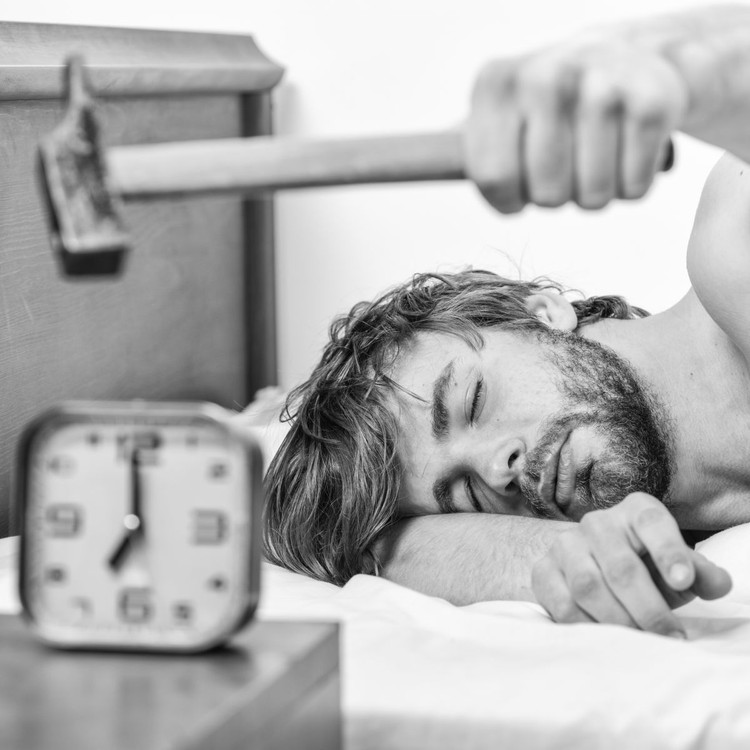The Top 5 Reasons You're Not Getting A Good Night's Sleep (And How To Fix Them)
Posted by Ann on 27th Dec 2022
Getting a good night's sleep is essential for our overall health and well-being. However, many people struggle to get a full night's rest, which can have negative consequences on their physical and mental health. In this article, we'll explore the top 5 reasons you might not be getting a good night's sleep and provide solutions for fixing them. One of the biggest factors that can impact sleep quality is the environment in which you sleep. Noise, light, and temperature can all disrupt your sleep, making it difficult to fall or stay asleep. To create a comfortable sleep environment, consider using black-out curtains to block out light, a white noise machine to mask any external noise, and keeping the room at a comfortable temperature (between 60 and 67 degrees Fahrenheit is ideal).
The Top 5 Reasons You're Not Getting a Good Night's Sleep (And How to Fix Them)
Getting a good night's sleep is essential for our overall health and well-being. However, many people struggle to get a full night's rest, which can have negative consequences on their physical and mental health. In this article, we'll explore the top 5 reasons you might not be getting a good night's sleep and provide solutions for fixing them.
1. Poor sleep environment
One of the biggest factors that can impact sleep quality is the environment in which you sleep. Noise, light, and temperature can all disrupt your sleep, making it difficult to fall or stay asleep. To create a comfortable sleep environment, consider using black-out curtains to block out light, a white noise machine to mask any external noise, and keeping the room at a comfortable temperature (between 60 and 67 degrees Fahrenheit is ideal).
2. Uncomfortable bedding
An old or uncomfortable mattress, pillows, or bedding can also prevent you from getting a good night's sleep. If you wake up with aches and pains, or if you find yourself tossing and turning throughout the night, it may be time to invest in new bedding.
One option to consider is CBD and copper infused bedding, which can help with relaxation and improved sleep. CBD, or cannabidiol, is a compound found in the cannabis plant that has been shown to have a number of health benefits, including reduced anxiety and improved sleep. Copper, on the other hand, has antimicrobial properties and is believed to have anti-inflammatory effects, which can help with muscle and joint pain.
Holistic sleep solutions
3. Stress and anxiety
Stress and anxiety can also disrupt your sleep, making it difficult to fall or stay asleep. To manage stress and anxiety, try practicing relaxation techniques such as deep breathing, meditation, or yoga. Exercise can also help reduce stress and improve sleep, so be sure to incorporate physical activity into your daily routine.
4. Poor sleep hygiene
Sleep hygiene refers to the habits and practices that can impact your sleep quality. Using electronics before bed, consuming caffeine late in the day, and having an irregular sleep schedule can all disrupt your sleep. To improve your sleep hygiene, establish a consistent sleep routine, avoid screens before bedtime, and limit your intake of caffeine and alcohol.
Studies suggest that screen time before bed can have negative effects on sleep quality, including shorter sleep duration and increased difficulty falling asleep. It's worth noting that the impact of screen time on sleep may vary depending on the individual and other factors, such as the type of screen being used and the content being viewed.
Stress is a normal part of life, but it's important to find healthy ways to manage it
5. Medical conditions
Certain medical conditions, such as sleep apnea and restless leg syndrome, can also prevent you from getting a good night's sleep. If you have tried implementing the above solutions and are still struggling with sleep, it may be worth consulting a healthcare professional to see if a medical condition is the cause. Treatments such as CPAP (continuous positive airway pressure) therapy or medications may be available to help manage these conditions.
"The temperature of your bedroom, and particularly your bed, can affect the quality of your sleep. If your bedroom is too hot or too cold, it can disrupt your sleep and lead to sleep disturbances."
— National Institute of Neurological Disorders and Stroke
In conclusion, there are many reasons you may not be getting a good night's sleep. By addressing factors such as your sleep environment, bedding, stress and anxiety, sleep hygiene, and medical conditions, you can improve your sleep quality and wake up feeling rested and refreshed.
READ NEXT
Author Ann / Published: Dec-26-2022

